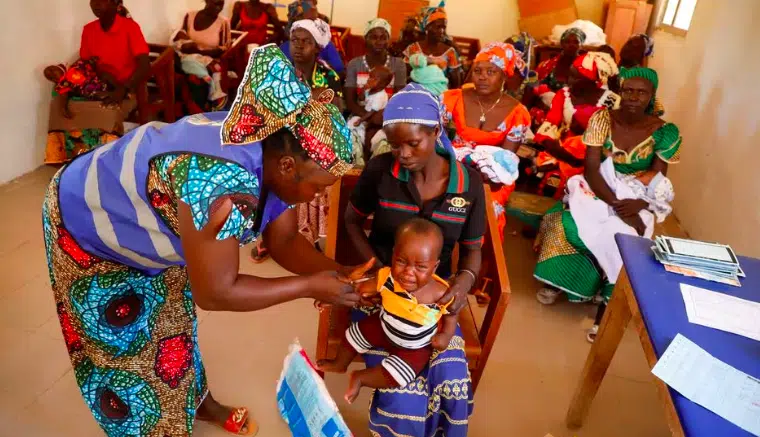Cameroon has initiated the world’s first routine vaccine program against malaria, utilizing the RTS,S vaccine developed by British drugmaker GSK. The vaccine, approved by the World Health Organization (WHO), is intended to complement existing measures like bed nets in the fight against malaria, a disease that claims the lives of nearly half a million African children under the age of five each year. Although Cameroon is the first country to implement doses through a routine program, 19 other countries are planning to roll out similar initiatives in 2023. The vaccination program aims to reach approximately 6.6 million children in these countries by 2024-2025.
The vaccine rollout in Cameroon has seen initial success, with reports of children being vaccinated at various health centers. However, challenges such as insufficient parental awareness and vaccine hesitancy have been reported in some areas. Health workers are conducting extensive community outreach to address vaccine hesitancy and emphasize the importance of continuing to use established preventative measures alongside vaccination.
The RTS,S vaccine, developed over approximately 40 years, is a significant milestone in the global fight against malaria. The disease has faced challenges in recent years, with disruptions linked to the COVID-19 pandemic contributing to an increase in cases. The rollout of the RTS,S vaccine is expected to be followed by the introduction of a second vaccine, R21, developed by the University of Oxford and the Serum Institute of India. Having two vaccines for malaria is seen as crucial to meeting the high demand and saving lives, especially in Africa.
While some experts have expressed skepticism about the potential impact of the vaccines, emphasizing the importance of broader efforts against malaria, health experts stress the need for a comprehensive approach, combining vaccines with established preventive tools like bed nets. The successful implementation of vaccination programs across multiple countries will be key to reducing the burden of malaria, a disease that poses a significant public health challenge in many regions.

